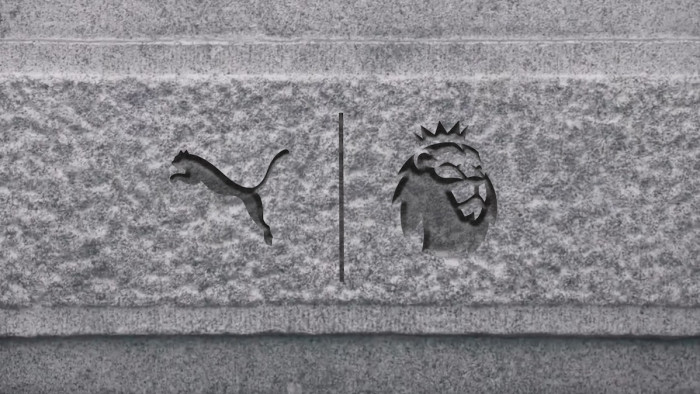The art of journeyman boxing: Inside the mind of a professional loser
Matt Blake charts the path of a fighter paid to be second best


Sonny Whiting is a journeyman boxer: a man paid to make other fighters look good. Here’s how he’s making a success out of being second best…
Words: Matt Blake
Photography: Greg Funnell
On a rainy November night, Sonny Whiting, a 28-year-old middleweight boxer with a missing tooth and a Hollywood bone structure, is warming up for his 16th professional fight.
He twists his torso, sucks in a breath and uncoils a sledgehammer right-hook that roars when it smashes his trainer’s outstretched hand. “That’s a big shot, Son,” his trainer, Johnny Greaves, pants. “Be careful how you use that in the ring; you’re not here to knock the lad out.”
It’s 7pm on a Saturday in the away fighters’ dressing room – a vast, anonymous function room – at Brighton’s Hilton Metropole hotel. Whiting, a quiet, muscular bruiser with cheesegrater abs and a face far too handsome for a professional punchbag, is a scaffolder by day. But tonight he has driven 100 miles, from Rochester in Kent, for his other job. That job is to hammer it out with a younger, undefeated, local fighter with his sights set firmly on the Big Time. That prizefighter is a 23-year-old named Max Wicks, which is all Whiting knows about him. That, and the fact his chances of winning are slim to none. But that’s not why Whiting’s here tonight. With 10 losses in 15 fights, Whiting is learning the art of journeyman boxing. He is here for £1,000 in cash.
“I don’t expect to win, no,” he tells me in between bursts on Greaves’s pads. “I’m a stepping stone; the gatekeeper for guys who want to go on to bigger and better things. I make more money here in 12 minutes than I do in two weeks at work.” He laughs. “It’s a no-brainer, really.”
Travelling man
‘Journeyman’, ‘on-the-road fighter’, ‘tomato can’, ‘palooka’ or just ‘the opponent’; the job has many names, but one motto: have gloves, will travel. They are the foundations of a sport built on blood and cash, happy to drive across the country – often alone, at very short notice – to take a beating for a grand. They are the footsoldiers sacrificed on boxing’s body-strewn no-man’s land to protect a king, or make way for a charging knight. They provide more promising fighters – the “ticket sellers” of the sport – a chance to pad their records and boost their careers. Without men like Whiting, and Greaves before him, there would be no Anthony Joshua, no Amir Khan and certainly no David Haye. In boxing, like in war, footsoldiers never become kings.
“Boxing is a sport, and it’s entertainment, but it’s also a business,” co-promoter and matchmaker Greg Steene, of Warriors Boxing Promotions, tells me in the bar downstairs. “So to make boxing work nowadays, the house fighter has to sell a minimum of 100 tickets to pay for the fight. So if you’re bringing up a young talent, you want to match him against boys who he can learn from but ultimately beat. If he gets banged out, he learns nothing and it’s a waste of selling all those tickets. It’s an embarrassment.”
To outsiders, this might sound like fixing. But inside boxing, this is the fine art of matchmaking. “It’s not fixed; sometimes they do win and that can help them,” says Steene. “But if a journeyman keeps winning he can become poison and nobody wants him back. No journeyman gets told to take a dive. But you do want a lad who’ll go in there, put up a fight, stay in contention, put on a show before, hopefully, ceremoniously losing. Whiting will be doing the same thing tonight, hopefully. I’m hoping Max Wicks will have that extra bit of nous to beat him.”

Box clever
Whiting’s last fight, a week ago, went badly: he won by knockout. The next day, the fighter he was scheduled to fight tonight in London pulled out, claiming injury. Fortunately, Greaves found him another, here in Brighton. He's fighting next Saturday too, and the Saturday after. “I tried being a ticket-seller at the beginning, but it was too hard,” he says. “Too many people let you down and it’s too much pressure. So I said to John I’d rather do this – no one to rely on, just me.” He has to be careful. While too many wins could dry up his work, an even worse outcome is a cut to the head, as it results in a mandatory 28-day rest period.
It’s a fine line to tread. And nobody has trodden it more finely than Greaves himself who, between 2007 and 2013, was arguably the greatest British journeyman of his generation: in 100 professional fights, he lost 96. A slight-ish man of 5ft 9in with cauliflower ears and a face, in his words, like a “kicked-in fire bucket”, Greaves is an old-school cockney, intelligent and eloquent. “I’ll never forget literally holding up this one prospect over my shoulder, whispering in his earhole, ‘Just f*cking stay on your feet, and let’s get through this and go home,’” he recalls. “But he’d come out swinging and completely blown his beans.” Greaves won on points and the string of fights he had lined up were cancelled one by one. “The promoter wouldn’t speak to me for three months after that,” he adds. “That’s when I realised winning didn’t pay. I had a young son and a daughter on the way and needed to be fighting every week.”
Despite the blip, Greaves was determined to regain his reputation and soon became known as the go-to guy for promoters suffering late pullouts. Journeymen, in boxing, are figures of respect, not shame. “I was the guy who’d take a fight at an hour’s notice, anywhere in the country; the guy who never got knocked out and always lost well,” he says. “I fought four world champions and more than 25 British champions, at times in front of 20,000 people.”
But you need more than just a granite jaw to cope with the life of a journeyman boxer. “I’ve climbed into the ring literally dripping with phlegm,” says Greaves. “I’ve been threatened, abused, even chased from venues. But that’s part of the job: always the away fighter, the villain, the most hated man in the room. Sh*t, I miss it like a desert misses rain.”
Didn’t he ever want to be a champion? “You’re always playing a bit of a battle in your mind, because sometimes you think to yourself, ‘You’re better than this!’” he says. “Maybe I could’ve been a champion. It can be a hard thing to deal with because people who don’t know the game automatically assume that you’re sh*t. But that’s not the case. I know for a fact that there are prizefighters out there who couldn’t do the job we do in a million years. Not just emotionally, they just aren’t good enough to fight week in, week out.”
Greaves did it to provide his children with a life he didn’t have growing up in London’s tough East Ham. But what about Whiting? “I’m under no illusion – I was never going to be a champion. But it’s good money and gives me a better life. I’ve been stopped three times and I think people look at my record and think it’s going to be an easy night’s work, so they come in and try to knock me out. My job is to put on a good show and not let that happen.”
And what about the beatings? Five weeks ago, Whiting drove four hours to Hull’s City Hall to get knocked out cold. An hour later, he was in his Ford Fiesta on the A1, driving himself home. “Climbing into that ring, the crowd, the adrenaline, just you and him – it’s the oldest sport in the world,” he says. “Life can be mundane. When I’m old and look back on my life, am I going to tell my grandkids about how I carried some metal poles up a ladder, or am I going to tell them about this? It’s the greatest buzz I’ve ever known.”


Fight night
Tonight’s show is a dinner event called ‘War of Attrition’. There are six fights, and Whiting’s on second. At the room’s centre is the ring, surrounded by dozens of 10-seater, circular banquet tables. The most expensive tickets cost £1,250, and include VIP ringside seats and a three-course meal. But this is no booze-and-schmooze business jolly. The cheap seats at the back (£35) undulate with ordinary Brightonians, here to cheer on their mates, sons or boyfriends.
Men sling abuse at the away fighters, wolf-whistle the Platinum Lace ring-girls or re-enact the punches with whichever hand’s not clutching a pint. Girlfriends with tiny dresses and massive cleavages glide about on skyscraper-heels, grimacing when their men get hit. It is a hard crowd that demands hard fights. The first journeyman enters the ring to a chorus of: “Wanker!”
The night itself is sanctioned by the British Boxing Board Of Control, the same outfit that governs the multimillion-pound fights involving Anthony Joshua, Amir Khan or David Haye. But Sky Sports or BoxNation aren’t here, and I’ve not seen a single celebrity. Not even from TOWIE. This is not white-collar boxing or amateur fun; this is pro boxing at the lower rungs. The ‘house fighters’ dream of the bright lights of a big show, a big fight, a belt, pay-per-view, Vegas, a place in history. This is where the dream begins, and where it can be destroyed.
Pull no punches
Greaves gives Whiting a final pep talk. “You know the drill, Son,” he says, smearing Vaseline on the younger man’s face. “You’re gonna move about, don’t get hit, get paid and let’s go home.” He grins and speaks up for the room, “Now, do me a favour; take a p*ss before you put your gloves back on. I ain’t holding your c*ck for you again.”
As Whiting wanders off in search of the loo, a middle-aged man in a tracksuit comes over and asks Greaves for a quiet word. The conversation lasts five seconds, Greaves nods and sidles back just as Whiting returns. “Sonny! That was Max Wicks’ manager. Forget the plan, he says the lad doesn’t want an easy night tonight, he wants a tear-up. So don’t hold back. Now, enjoy yourself out there... you won’t get these days back, Son, trust me.”
A muffled voice seeps through the walls: “LADEEEEZ AAAND GENTLEMEN, IT’S TIME FOR OUR SECOND FIGHT OF THE NIGHT...”
We follow the two men into an oak-panelled corridor where we wait outside the double doors into the fight hall, listening to Drake’s Hotline Bling blaring inside. Whiting’s name is announced. The doors swing open to a dazzling spotlight and a cacophony of boos. He climbs through the ropes, half-smiling. Then Wicks enters and the crowd explodes. Wicks has a record of two fights, two wins and has sold around 200 tickets for tonight. “F*cking ’ave him, Maxie” and “Kill him!” are some of the more audible calls from the crowd.
After a few final words from their cornermen and instructions from the referee, round one of four is rung out. The two men collide like rams, their arms awhirl with punches, some landing, others flying. It is furious and intense. “Get off the f*cking ropes, Sonny,” Greaves can be heard yelling. “Hands up! Work that jab.” Whiting is not without skills, and way more talented than his record suggests. He dances around many of the punches, answering most with one of his own. He has nimble feet and powerful fists. The bell sounds the end of an even round.
Round two begins much the same. Wicks looks strong – Whiting’s eating punches. Then, during one frenzy of particularly punishing blows, something quite unexpected happens. Whiting twists his torso, sucks in a breath, and uncoils that sledgehammer right-hook. It lands flush on Wicks’s chin and the home fighter crumples on to his backside. Whiting bounces into a neutral corner. The ref gives a shaken Wicks the eight-count before allowing him to continue. But he’s bleeding from the nose now, and Whiting’s caught its scent.
The third and fourth rounds play out more or less like the first. Wicks fights well, better even, at one point punching Whiting halfway out of the ring. Then the final bell, and
both men stumble back to their cornermen, exhausted. Whiting’s grinning, Greaves is not. And, before you can say, “What the bollocks happened there?” the referee is holding Whiting’s arm in the air.

The upset
Back in the dressing room, the other journeymen crowd in to congratulate the unlikely victor. “Well done Whiting – you sure as f*ck showed him,” are the words of one. Greaves disappears to collect Whiting’s money. He passes Greg Steene at the door. “You fought well there, Sonny,” Steene says. “You gave the crowd a real upset.” I ask if Steene would consider promoting Whiting as a home fighter after such a convincing win. “Hah, not likely,” he smiles wryly. “Not likely at all.”
Whiting isn’t worried that he won. Now, surrounded by people, his chest and shorts smeared in his opponent’s blood, he’s elated. “I won!” he gushes. “I bloody won. It was a tough fight but he couldn't take the power, could he? He could have had an easy fight but he didn’t want it, did he?”
Greaves returns with a bulky brown manila envelope in his hand. “‘Course I’m happy,” he says, patting Whiting on the back. “I’m always pleased when one of my boys wins. I always say, if someone’s going to come out at one of my boys, we ain’t a punch bag for anyone. We went in there with a plan of boxing sensibly, but the lad wanted a punch-up and came unstuck. It’s not a tickling contest.”
By 9.30pm, the third fight is underway, but neither Whiting nor Greaves are interested in hanging around. They’ve got their money and it’s still a two-hour drive to get home. While Whiting’s packing up his kit, I catch Greaves having a roll-up cigarette outside. “Sonny caught him with a quality shot, but it doesn’t make my job any easier,” he says. “It’s going to be hard getting nice, steady jobs on these sort of shows for him until he gets beat a few times on the bounce. He’s becoming a risk to prospects’ unbeaten records. I’ll have to make a couple of calls on Monday and see where we stand.”
Then, after a long, thoughtful pull on his cigarette, he adds, “But y’know, he’s still young. There’s time. I’ll make a Johnny Greaves out of him yet.”
Latest
Related Reviews and Shortlists









